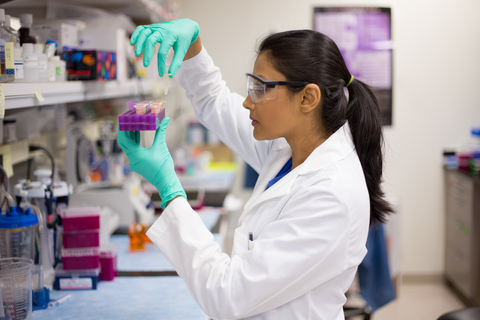Bond Digital Health leads the fight against bovine TB

Bovine tuberculosis poses a major threat to beef and dairy industries across the world. Cardiff-based digital healthcare solution provider Bond Digital Health is hoping to lead the fight against this devastating disease.
So far, attempts to eradicate the infectious respiratory disease have cost UK taxpayers tens of millions of pounds every year and have caused huge economic and emotional damage to farming communities and society. In Wales last year more than ten thousand cattle were slaughtered as a result of bovine TB. This figure includes infected herds and herds that might not have been infected but tested positive or showed symptoms.
Efforts to halt the spread of the disease included the trapping and culling of wild animals, mainly badgers, if they tested positive. Figures released by Defra reveal that the recent badger cull alone cost more than £380,000 and in fact resulted in five badgers killed in Wales in 2017, a cost of £76,662 for each badger killed.
Governments are also working to eradicate bovine TB using a rigorous testing programme, but the results of the most commonly used tests are highly subjective. As a result, when a test result appears positive, cattle herds must be quarantined and then re-tested after sixty days. It has been estimated that up to 40% of cattle are being needlessly slaughtered as a result of false positive test results. This represents a massive economic and emotional cost to farmers and affects long-term planning. According to Defra, the average cost of a bovine TB outbreak on a farm is £35,000 with governments absorbing around £20,000 of the cost per farm.
Ian Bond, CEO at Bond Digital Health, said “It’s clear a better solution is needed, which is why Bond Digital Health has helped set up an international collaborative project between universities and businesses that is working to develop a more accurate test and associated computerised infrastructure for bovine TB. Our vision is to develop a new, cost-effective, accurate and rapid point-of-care test to enable the detection, management and control of bovine TB, directly supporting the Welsh and UK governments’ ambitions to eradicate the disease completely achieving OTF (Officially TB Free) status nationwide. Using Bond’s technological expertise, we will develop a system that provides virtually instant results in real time. Each animal will be immediately processed, scanned and tested on-site and the data will be immediately and automatically uploaded to a secure cloud-based database for analysis. Results will be fed back simultaneously to the farmer and appropriate authorities for any intervention required. This will allow more accurate monitoring and the development of an improved disease management strategy.”
The consortium includes academics from Aberystwyth University’s Institute of Biological, Environmental and Rural Sciences (IBERS) and University College Dublin, as well as life sciences companies Sona Nanotech, ProTEM and Dynamic Extractions.
The consortium was officially launched at the Royal Welsh Show in Llanelwedd on July 23rd. The Royal Welsh is Europe’s largest agricultural show, attracting more than two hundred and thousand visitors across four days. Ian Bond said the show was “The ideal forum for us to share the details of our project. There was much interest in our proposals, including from farmers directly affected by the disease, from politicians whose communities have been affected, and even from lawyers who have represented affected farmers in their fight for compensation.”
Introducing the consortium at the Aberystwyth University pavilion, Professor Mike Gooding, director of IBERS, spoke of his personal experience of bovine TB both in his current role at Aberystwyth University, which has four hundred and fifty cattle, and in a previous job at Reading University, which had six hundred cattle.
He said “We need to address animal health in a significant way. I have suffered greatly from false positive TB tests, both at Reading and Aberystwyth. It causes a lot of anxiety and stress. If we are going to control and manage bovine TB, we need a rapid and reliable point of farm test.”
Mike Gooding said the test proposed by the consortium could make a “big difference” to the management of healthy herds and to how rapidly authorities could respond to genuine cases of bovine TB. He said “The farming industry has been crying out for this for the last 15 years.”
Bond Digital Health have been encouraged by a letter from Dr Christianne Glossop, Chief Veterinary Officer for Wales, in response to their proposals. She wrote “We are taking a keen interest in all developments in respect of new TB tests and we welcome innovative approaches. The potential uses of a validated test to be developed by this consortium is exciting, not only for the Wales TB Eradication Programme with the prospect of achieving OTF (Officially TB Free) status earlier; but on a worldwide scale, both in terms of Bovine TB and Human TB. The success of this project could put Wales firmly on the global map. The success of this project could put Wales firmly on the global map.”
Ian Bond said “Bond is proud to be leading efforts to break through the disease detection barrier in cattle. We are certain that our consortium has the scientific expertise and the cutting-edge technology to develop an effective and scalable solution to this serious global problem.”








